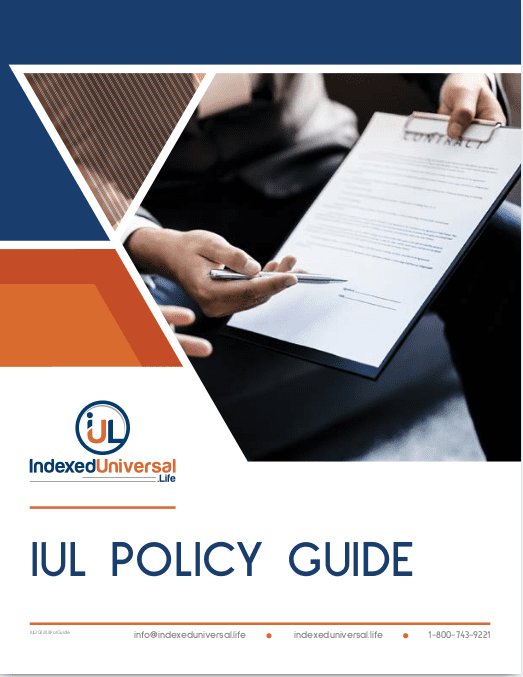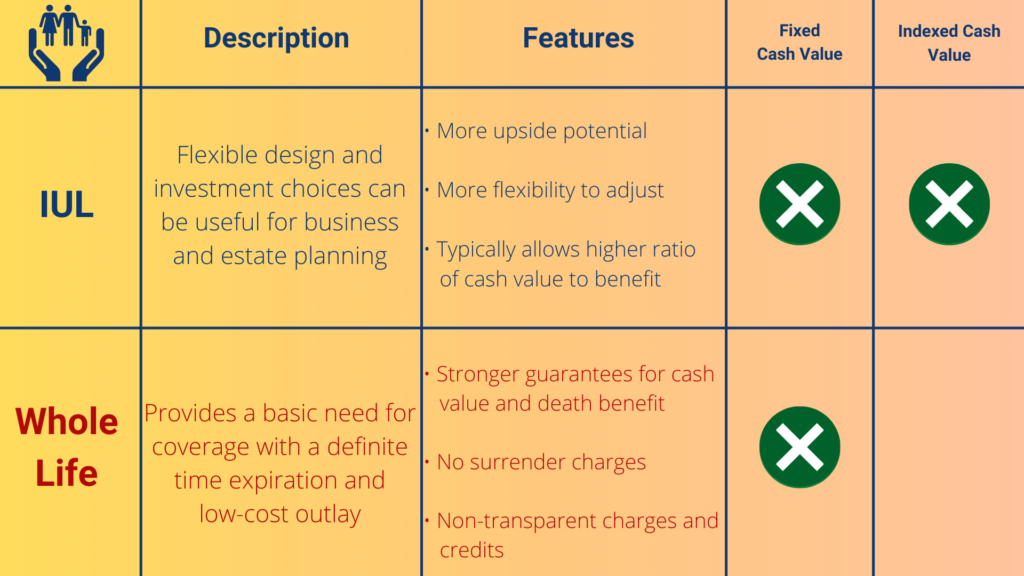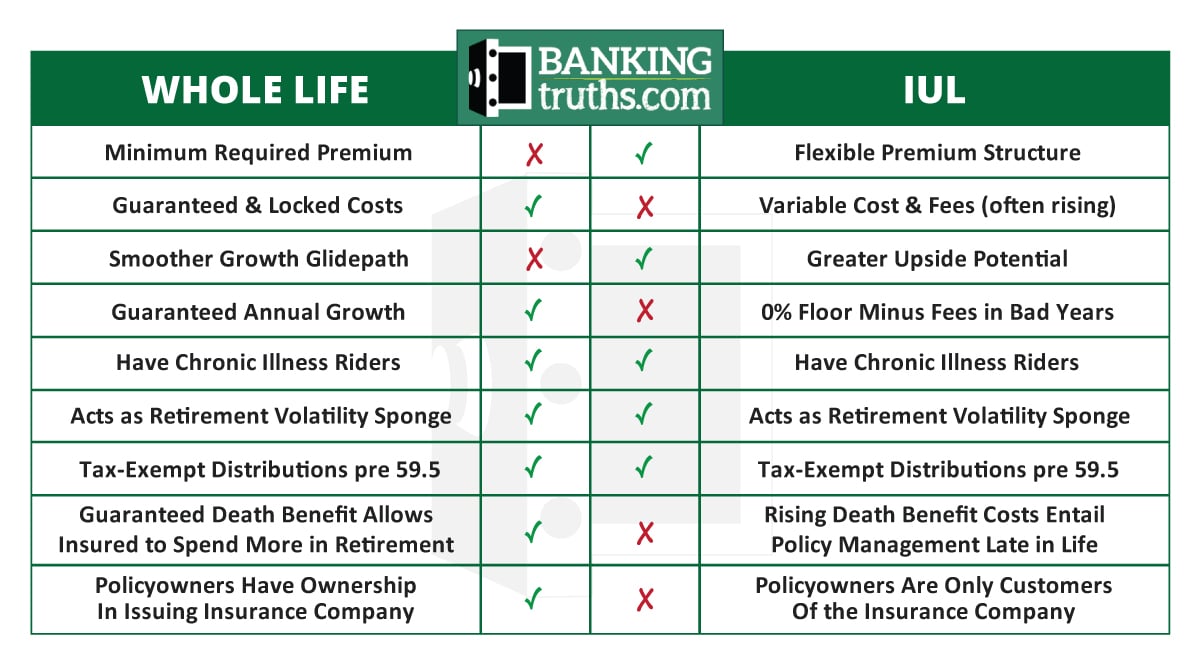All Categories
Featured
Table of Contents
Do they contrast the IUL to something like the Vanguard Total Amount Stock Market Fund Admiral Shares with no lots, an expense proportion (ER) of 5 basis factors, a turn over ratio of 4.3%, and an extraordinary tax-efficient document of distributions? No, they contrast it to some terrible proactively taken care of fund with an 8% tons, a 2% ER, an 80% turnover proportion, and an awful document of temporary capital gain distributions.
Mutual funds typically make yearly taxed circulations to fund proprietors, even when the value of their fund has gone down in worth. Shared funds not just require income coverage (and the resulting yearly taxation) when the common fund is rising in value, but can also impose earnings taxes in a year when the fund has actually gone down in value.
You can tax-manage the fund, collecting losses and gains in order to lessen taxed distributions to the financiers, yet that isn't somehow going to alter the reported return of the fund. The possession of shared funds may call for the common fund owner to pay projected taxes (indexed universal life insurance for retirement).

IULs are simple to place so that, at the owner's fatality, the beneficiary is not subject to either income or inheritance tax. The exact same tax obligation reduction methods do not function virtually also with shared funds. There are countless, frequently costly, tax obligation traps related to the timed trading of common fund shares, catches that do not apply to indexed life insurance policy.
Opportunities aren't very high that you're mosting likely to undergo the AMT as a result of your mutual fund circulations if you aren't without them. The remainder of this one is half-truths at best. While it is real that there is no income tax due to your beneficiaries when they inherit the earnings of your IUL policy, it is also real that there is no revenue tax obligation due to your successors when they inherit a common fund in a taxed account from you.
Universal Life Ideal
There are much better methods to prevent estate tax obligation problems than buying investments with reduced returns. Shared funds may trigger revenue taxes of Social Protection benefits.

The growth within the IUL is tax-deferred and might be taken as free of tax earnings by means of loans. The policy proprietor (vs. the shared fund supervisor) is in control of his or her reportable revenue, thus allowing them to decrease or even eliminate the taxes of their Social Security advantages. This is wonderful.
Below's an additional very little concern. It's real if you buy a mutual fund for claim $10 per share prior to the distribution date, and it disperses a $0.50 circulation, you are after that going to owe taxes (possibly 7-10 cents per share) despite the fact that you haven't yet had any kind of gains.
In the end, it's actually regarding the after-tax return, not exactly how much you pay in taxes. You're likewise possibly going to have even more cash after paying those tax obligations. The record-keeping requirements for possessing common funds are substantially more complicated.
With an IUL, one's records are kept by the insurance provider, duplicates of yearly declarations are sent by mail to the proprietor, and distributions (if any) are totaled and reported at year end. This set is also type of silly. Certainly you should keep your tax records in instance of an audit.
Adjustable Life Insurance Policy
Barely a reason to buy life insurance policy. Shared funds are frequently component of a decedent's probated estate.
On top of that, they undergo the delays and costs of probate. The proceeds of the IUL plan, on the other hand, is constantly a non-probate distribution that passes outside of probate straight to one's named recipients, and is for that reason not subject to one's posthumous creditors, unwanted public disclosure, or comparable hold-ups and prices.
We covered this under # 7, but just to evaluate, if you have a taxed common fund account, you need to put it in a revocable trust fund (or perhaps simpler, make use of the Transfer on Fatality designation) to avoid probate. Medicaid incompetency and lifetime income. An IUL can provide their proprietors with a stream of earnings for their entire life time, no matter of how long they live.

This is useful when arranging one's affairs, and converting properties to revenue before a retirement home confinement. Mutual funds can not be transformed in a similar way, and are usually taken into consideration countable Medicaid properties. This is one more stupid one advocating that inadequate individuals (you recognize, the ones that need Medicaid, a federal government program for the poor, to pay for their nursing home) need to use IUL rather than common funds.
Index Universal Life Insurance Companies
And life insurance policy looks dreadful when contrasted fairly against a pension. Second, people who have money to purchase IUL above and beyond their pension are mosting likely to need to be terrible at taking care of cash in order to ever before get Medicaid to spend for their assisted living facility expenses.
Persistent and incurable health problem cyclist. All policies will enable a proprietor's easy access to cash money from their plan, usually waiving any type of abandonment charges when such people endure a severe disease, require at-home care, or end up being constrained to a retirement home. Common funds do not offer a comparable waiver when contingent deferred sales costs still relate to a shared fund account whose proprietor requires to offer some shares to money the costs of such a stay.
Insurance Company Index
You get to pay more for that advantage (motorcyclist) with an insurance coverage policy. Indexed global life insurance gives death benefits to the recipients of the IUL proprietors, and neither the owner nor the beneficiary can ever before lose money due to a down market.
I definitely do not require one after I get to financial self-reliance. Do I want one? On average, a buyer of life insurance coverage pays for the real price of the life insurance policy benefit, plus the prices of the plan, plus the earnings of the insurance coverage business.
Iul Retirement Calculator
I'm not totally sure why Mr. Morais threw in the whole "you can't lose cash" once again below as it was covered rather well in # 1. He just wished to duplicate the very best selling point for these points I mean. Once again, you do not shed small dollars, however you can lose real dollars, in addition to face serious possibility price as a result of low returns.

An indexed global life insurance plan proprietor may exchange their plan for a totally various plan without setting off revenue tax obligations. A shared fund owner can stagnate funds from one shared fund firm to another without offering his shares at the former (therefore triggering a taxable occasion), and repurchasing new shares at the latter, often subject to sales costs at both.
While it is real that you can exchange one insurance plan for one more, the factor that individuals do this is that the first one is such an awful policy that even after purchasing a new one and going with the very early, negative return years, you'll still come out in advance. If they were sold the right plan the very first time, they shouldn't have any type of wish to ever before trade it and go with the very early, unfavorable return years once again.
Latest Posts
Universal Life No Lapse Guarantee
Index Universal Life Insurance With Long Term Care
Universal Insurance Payment